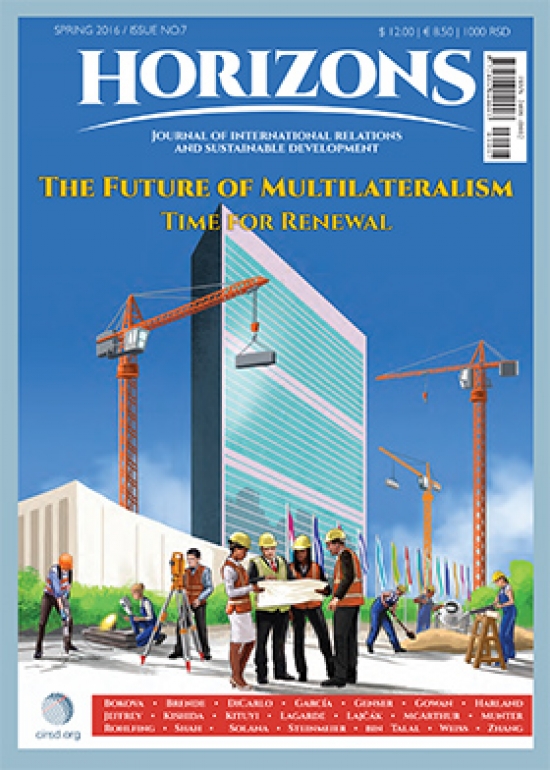 WE LIVE in transformational times. Whilst our world is becoming increasingly interdependent and globalized, it is also burdened by growing geopolitical frictions, rising inequality, accelerated environmental degradation, and an overall erosion of confidence in the international system—a result of the weakening fabric of global governance. We believe that under such circumstances, ensuring a more concerted, robust, and inclusive multilateralism represents the strongest safety-net against contemporary perils.
WE LIVE in transformational times. Whilst our world is becoming increasingly interdependent and globalized, it is also burdened by growing geopolitical frictions, rising inequality, accelerated environmental degradation, and an overall erosion of confidence in the international system—a result of the weakening fabric of global governance. We believe that under such circumstances, ensuring a more concerted, robust, and inclusive multilateralism represents the strongest safety-net against contemporary perils.
AT THE center of our generation’s effort to advance peace, stability, and continued human progress must stand the United Nations: the institution uniquely endowed with comprehensive legitimacy and universal membership.
HOWEVER, there is mounting criticism that the Organization is underperforming and that a business-as-usual approach will make it unfit for purpose in the twenty-first century. Its leadership, beginning with the next Secretary-General, will need to undertake a series of bold measures to reinvigorate the UN.
MEANWHILE, regional organizations such as the African Union are looking to take on additional responsibilities in various fields. Their rightful aspirations should be supported in ways that do not cause further divisions and fragmentation.
SUCCESS in common endeavors to ensure the effective delivery of global public goods will have to be built on a healthy foundation of international economic governance. Important steps towards this end have been taken of late by some international financial institutions and regional development banks. With its recent approval of the 2010 Quota and Governance Reforms, the International Monetary Fund, for instance, has shown a determination to more accurately reflect the significance of key emerging markets. It is also seeking to help provide policy guidance and financial resources in the implementation of the Sustainable Development Goals, including their climate provisions—critical for the success of the 2030 Agenda and the Paris Climate Agreement.
TWENTY-FIRST-CENTURY multilateralism should be characterized by greater openness, transparency, and inclusivity—with both developed and developing countries working more closely together to achieve greater harmonization in their respective policies. Despite certain breakthroughs achieved through particular fora, such as the G20 and the Nuclear Security Summits, the alternative is hardly appealing: a worldwide burgeoning of ad-hoc coalitions, initiatives, and informal networks; growing jurisdictional rivalries; and disparate enforcement mechanisms. That would by and large render ineffectual the conduct of multilateral diplomacy in the time ahead.
WE HOPE that the contributions featured in the present edition of Horizons can further raise awareness of the strategic issues at stake, and thus help advance the global conversation on the future of multilateralism.







